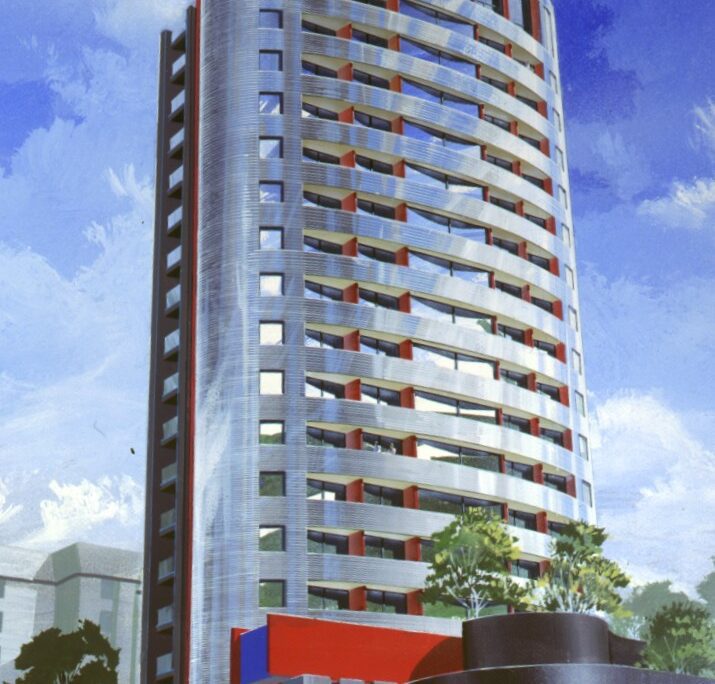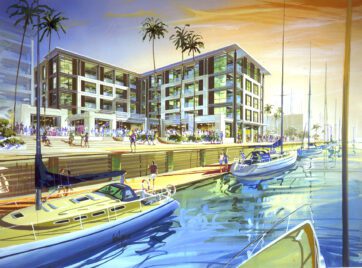Auckland’s residential real estate market is on a high. Cautious home owners question whether it can last. Will the market plateau soon, or is it headed higher still? Are we in a boom that’s sure to go bust?
Pundits agree the Auckland real estate market will remain reasonably robust for at least two or three years. It’s driven by supply and demand, and with the rapidly increasing population, growth is not keeping up with demand. Rozanna Wozniak of Property Pack Ponsonby, who was formerly chief economist for the ASB Bank, estimates the bottom of the cycle was around the winter of the year 2000. She says the improvement in turnover and movement in house prices became noticeable last summer, the same time migration started to abruptly turn around. Wozniak expects a strong summer this year. She says there are several factors driving the market:
Migration (probably the most important factor)
People catching up on previous decisions. During the late 1990s people put off their decisions to shift or upgrade because they didn’t want to realise their losses. Aucklanders tend to move house around every five years, sometimes more frequently.
Investors are active again. There’s a shortage of rental properties and investors are responding.
People’s expectations about the direction of house prices is strong. People are happier to borrow when they expect the value of their house to rise.
Interest rates have risen this year, but are not restrictively high. In addition, there have been some attractive fixed rates on offer recently.
Wozniak estimates with the combined effect of migration and natural population growth there were around 14,200 new households in Auckland during the year June 2002, compared with growth of 5500 households in the year to June 2001.
Compared with growth in supply, there were just over 10,000 dwelling consents issued in Auckland during the 12 months to September 2002. This is precisely what is fuelling the turnaround in demand for housing (see graph). Co-owner of Harcourts, Paul Wright, believes prices are going to go even higher, with a sustained life in market similar to what we saw in 1996.
“But I don’t think the lift has been a boom. I think it’s the good, strong market that you’d expect with the economic drivers. If these remain, the market will continue its good, strong form”.
Some people are nervous about the threat of terrorism and its effect on our economy. Wright believes the terrorism threat will positively influence immigration to New Zealand. Because were so small he doesn’t think we likely to be a target. “We’re unlike Australia. They’re strongly aligned to the States. The mood over there is very much when, not if. New Zealand doesn’t have the same cosmopolitan mix. From our perspective, it’s like Tonga supporting somebody.
“I think Asia immigration will continue to drive real estate up. Most of 30,000 a year will go to Auckland. Space throughout the metropolitan Auckland area is being gobbled up by foreign language schools as the Asians look for safe havens, somewhere to send their children – and that’s down here.” Wright also cites investors lack of interest in shares.
“While prices are down, now should be a good time to buy, but now people are investing in bricks and mortar. Interest rates are good. When you can fix for five years at 6.99%, that’s starting to get a pretty attractive long-term rate, which indicates the economists and banks are looking ahead and not seeing much fluctuation.”
Having said this, Wright adds that if President Bush goes to war, if we lose the America’s Cup, or if there’s a terrorist attack on Australian soil, the market could change quickly.
“But if we read the broad indicators, given the confidence generated, I see the market being sustained for 12 to 24 months.”
Melview Developments’ Nigel McKenna is also positive about Auckland’s future. Referring to the statistical information Melview uses to constantly analyse the market, he says: “Nothing says anything will change for the future. Auckland is a thriving, growing city, which has an increasing population. Demand for residential is there in the short and medium term and probably the long term. Feedback from the big players, such as the banks, is that they see no change in interest rates in the near future. Were a stable economy, stable government and leadership.”
He regards the relatively weak worldwide economies as a favourable scenario – “it’s unlikely they’ll get much weaker, which means New Zealand won’t be affected by any worldwide crash”. If they listen to the advice of those in the know, how owners and investors contemplating getting out of the real estate market now should perhaps reconsider.



